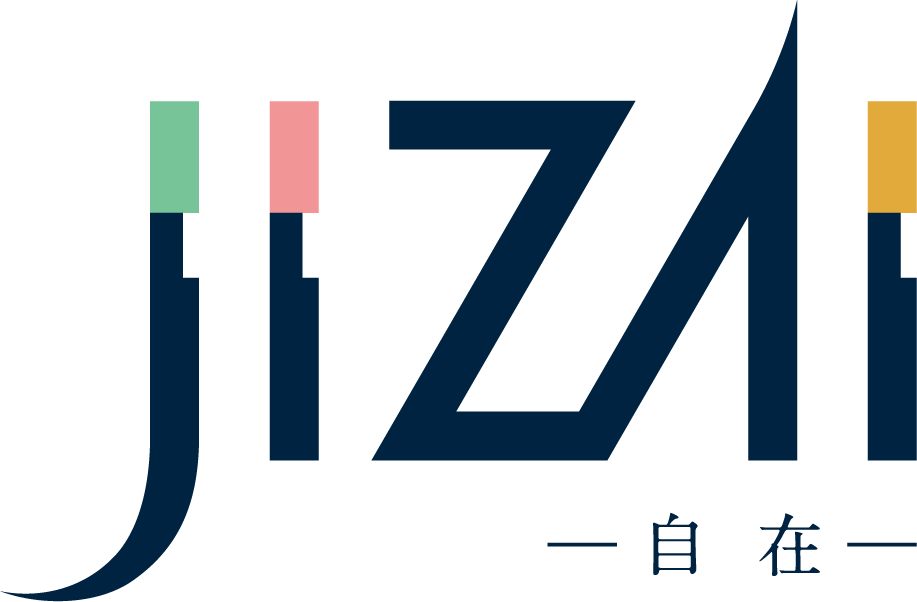
MANI Panel Discussion
Differences between Japanese and Taiwanese dentistry and root canal treatment
Leading doctors from Japan and Taiwan will exchange opinions on the dentistry in both regions and on root canal treatment, recognized as a highly difficult procedure.
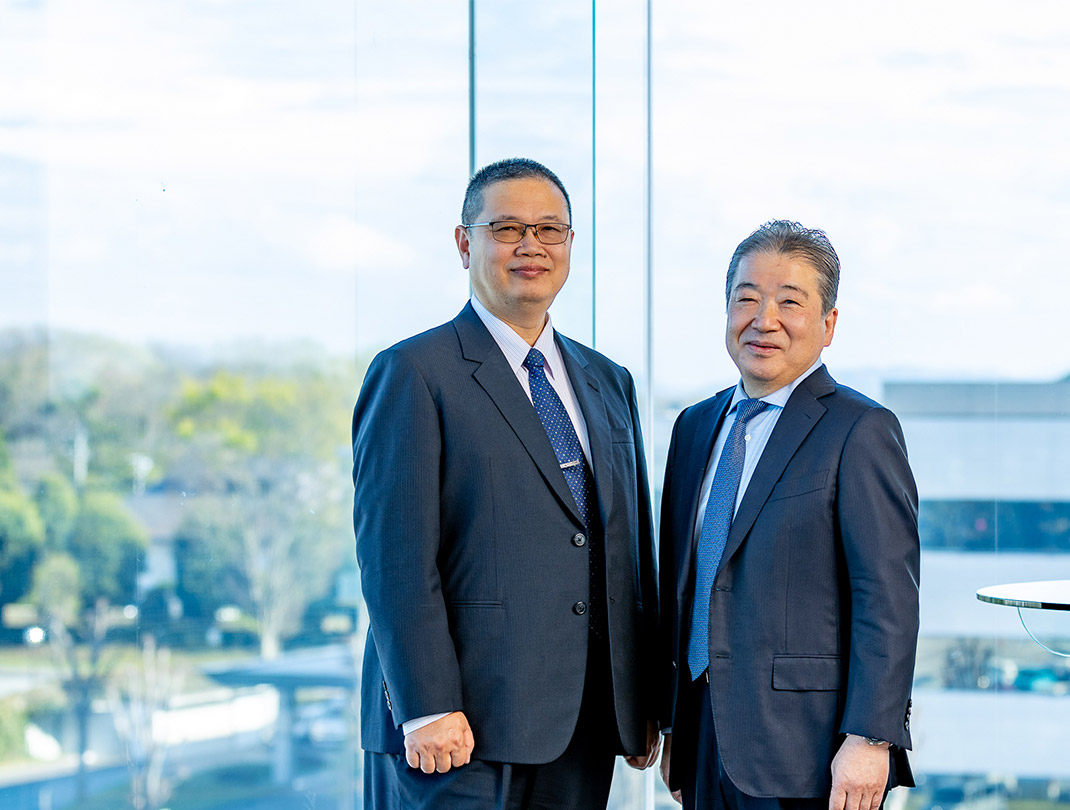
MANI PANEL DISCUSSION
Panelist Profiles
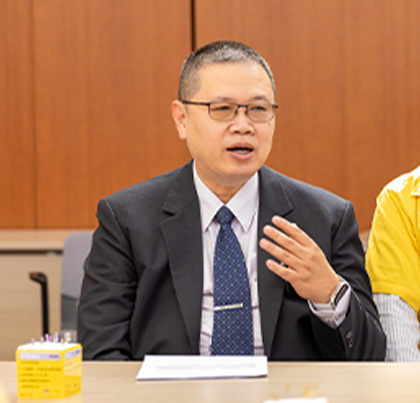
Panelist
Dr. Lin,Ping Hong
Practicing in Taichung, Taiwan
Former Executive Director of the Taichung City Dental Association
Interpreter: Zhang, Ze (MANI)
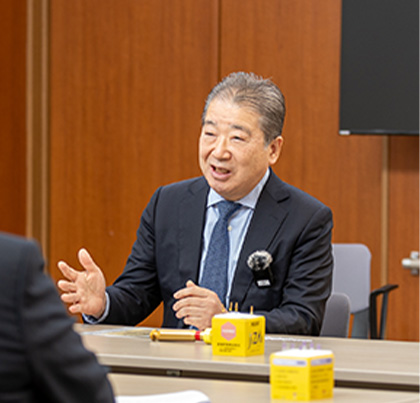
Panelist
Dr. Okaguchi Morio
Practicing in Hanzomon, Tokyo
Director of the Society of Japan Clinical Dentistry (SJCD)
Interpreter: Chen, Chia Chen (Chang Ming Trading)
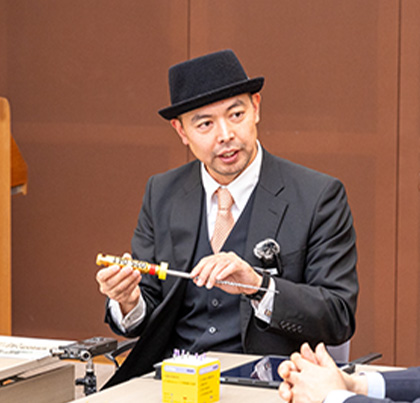
Moderator
Arakawa Koichi (MANI)
Dental Business Division
Leader, International Sales Group
TOPIC01
Please introduce yourselves.
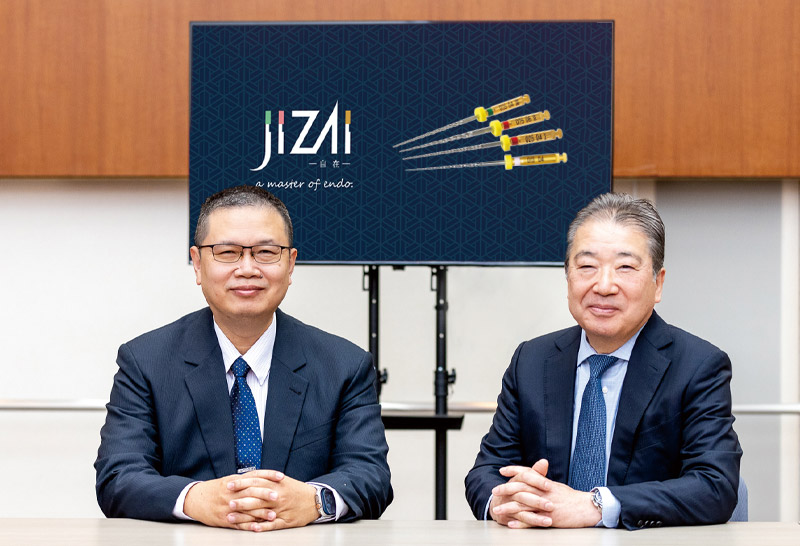
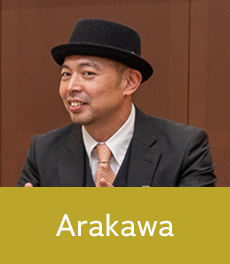
Hello everyone. Today, we're so pleased to invite Dr. Morio Okaguchi and Dr. Lin Pin Hong, who represent Japan and Taiwan respectively, to the Kiyohara factory of MANI. We would like to hear about the differences between dentistry and root canal treatment in Japan and Taiwan,as well as any suggestions you may have for MANI.
First of all, please introduce yourselves.
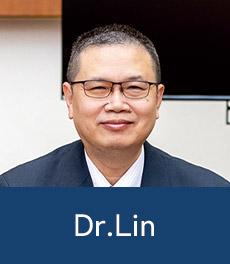
Hello everyone. My name is Lin Pin Hong and I'm from Taiwan.
I graduated from the graduate school of the College of Dentistry at China Medical University in Taichung City, Taiwan, and have been in practice for 34 years. I have mainly been treating root canal therapy. I was 54 years old when I entered graduate school. At present, I am working with a total of 14 doctor partners in Taichung City. We cover all areas of expertise, and see around 100 to 120 patients every day. I am currently a lecturer for various manufacturers, including MANI. I hold a PGY (Post Graduation Year) course every year, and also give lectures on an irregular basis.
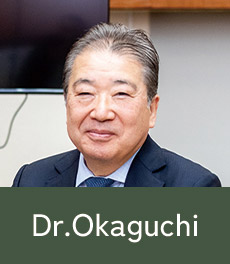
My name is Morio Okaguchi.
I am a general practitioner in Hanzomon, Tokyo. After graduating from university, I gained experience at several clinics before opening my own clinic. My clinic has two full-time doctors, one part-time doctor, two hygienists and assistant staff. The main focus of my practice is endodontic therapy, including root canal treatment, but as I am also a GP (general practitioner), I took care of all other types of treatment. I am also very fortunate to have many opportunities to give lectures, almost every week.
I have also had a chance to hold two webinars for MANI, more than 1,500 people participated respectively, which I am very grateful for. I also frequently give lectures at academic conferences in Taiwan and around the world.
Dr. Lin also took my hands-on course on microscopes in Taipei, so I think he had known me well.
By the way, Dr. Lin, I'd like to ask you something. Can you tell us about the background why you graduated the school at age of 54?

Yes, I was offered a position as an assistant professor by a professor who had helped me when I was a university student. So, while I was also in a position to teach students as a lecturer, there was also a time when I was also a graduate student.

I see. We could already find the differences between the two of you from your introductions.
The similarities are that you are both involved in educational activities and self-improvement, and the differences are in the way you run your clinics. Dr. Lin works with a number of partners and also manages the organization like a business owner. On the other hand, Dr. Okaguchi is a leading expert in root canal treatment and a professional who provides patients with the highest quality medical technology in Japan.
TOPIC02
What made you want to become a dentist?

Now, I would like you to look back on the time when you first decided to become a dentist, remembering the time when you first decided to become a dentist.

Yes, I went on to university from the affiliated high school and majored in economics.
To be honest, I was so absorbed in my ski club activities during university, and there were also "student protests" at the time, that I didn't really feel like I was studying economics at university. When I was graduating, I saw my club seniors working at big companies, but I felt like it might not be fit for me. So, I wanted to choose a career that I really wanted to do, so I researched over 100 different jobs. In one job introduction book, I read the words “If you don't feel joy in making things, you can't work as a dentist”. I've always been good with my hands, so I felt that I could relate to that, and I felt that I had the aptitude to be a dentist, so I chose to become a dentist.

I have always liked helping people, and that is why I chose a career in the medical services industry.
The reason I chose root canal treatment is because it can relieve the pain of patients and at the same time preserve their teeth.This is a job that gives me a great sense of achievement. When I was a student or a new graduate, there was a lack of information, so there were few options for learning and not many opportunities for continuous learning.
At the time in Taiwan, most dentists would go straight into work at a clinic after graduating, so there was no tradition of passing on knowledge through a master-apprentice system, and it wasn't a good environment for doctors who wanted to continue learning. If you don't have seniors who can share their treatment experience with you after graduating, it becomes difficult to improve your knowledge and abilities as a doctor.
In my case, I was lucky to have two seniors who guided me in the field of root canal treatment.

I see. Now you are in the position of teaching, but when you look back on your time as a student, you didn't have the same environment to learn in as you do now, did you? What do you think about that, Dr. Okaguchi?

Yes. In Japan, you learn a lot at university,but I think that the skills you really need in a clinical setting are often things you learn after you graduate. In my case, when I was at dental college, I would go and help out at the offices of doctors I knew, and that helped me to deepen my learning. So by the time I graduated, I had a good understanding of the flow of dental treatment. Also, in Japan, there are various training courses. You can learn directly from many doctors who have mastered their respective fields, such as prosthodontics, periodontics, endodontics, etc. In my case, I went to see the famous Swedish dentist Dr. Lindhe every year to learn the latest knowledge and techniques in the field of periodontology.

So you created your own learning environment and opportunities. As a company, we also want to deliver better products to as many dentists as possible, so we would like to provide as many opportunities as possible to introduce our products and contribute to the work of dentists.
TOPIC03
What do you value most as a dentist?


Now, let's talk about the present. After becoming a dentist and undergoing self-improvement, we would like to ask you about what you value most as a dentist now.

What is particularly important is to have the value of “treating patients as if they were your own family” and to improve your own knowledge and skills. I think that in the past, the relationship between doctors and patients was hierarchical and one-sided. This is because doctors expected patients to cooperate fully with the medical plan they presented, while patients had no choice but to accept and cooperate with that plan unconditionally. In today's medical care, the relationship is more like a partnership or a family, where both parties think about the your needs, set common medical goals, and work together to achieve them. This makes it possible to create benefical results for both parties.
As for advice for new graduates, since they have little clinical experience after graduation, they should acquire more specialized knowledge and skills through various routes. And based on that, they should fulfill their medical duties and responsibilities.
I think that dentists can fulfill their responsibilities to their patients and to the job of dentist by continuing to learn, recognizing that there is no end to academic study.

The relationship between patients and doctors has changed over time, and now, in particular, it is important that there is a relationship of mutual trust between patients and doctors.
So, Dr. Okaguchi, could you tell us what you value most as a dentist?

Yes, I think it is a matter of conscience as a dentist.Patients who come to the dentist have some kind of complaint, so we need to listen to their complaints sincerely, provide the best possible medical care, and continue to achieve results that satisfy the patient. To do this, it is also necessary to be well-versed in everything as a dentist.
It may be difficult to provide all dental treatments at the highest level in the world, but since the patient's teeth are irreplaceable, I think it is the conscience of a dentist to constantly review, improve and refine one's own skills, as well as acquiring the knowledge and skills to provide the best possible medical care as a dentist.
The conservative treatment I am currently performing is the result of decades of improvements and refinements, and it is not a treatment that was developed in a few years, so I think it is necessary to have experience to review one's own treatment. As a result, it has become possible to preserve teeth that were diagnosed as being difficult to treat and were extracted, and it has also become possible to preserve the dental pulp of teeth that experience severe cold pain or spontaneous pain. Nowadays, there are almost no more cases of pulpectomy, and I think this is the result of improving and revising our own treatment. What patients are looking for now is to preserve their own teeth as much as possible and to live with their own teeth for as long as they live. I believe that preserving the pulp and preserving the teeth are important keywords for this.

Thank you. Actually, there is a connection between our management philosophy and what you do - meant "for the patients".
Our corporate philosophy at MANI is “Contributing to the world welfare through development, production and distribution of its products beneficial to patients and doctors.”.And as a manufacturer of endodontic files used in root canal treatment, we would like to spread the value and significance of root canal treatment and conservative treatment, which you mentioned earlier, to as many patients as possible.
TOPIC04
What advice would you give to yourself when you first started out?

So next, if you could go back in time to when you first started out, what advice would you give to yourself?

Well,if I could go back in time and give advice to my younger self after graduating, I would tell him to find a specialty as soon as possible and study hard.Also, if he was thinking of choosing endodontics, I would tell him to learn how to use MTA, rotary instruments and microscopes as soon as possible.
As for clinic management, it is becoming difficult to fight alone, so I would advise that you join a group-run clinic like a chain store. If you can save on the cost of opening a clinic, you can invest in high-quality educational courses and specialized tools on an ongoing basis. In order to survive in the medical industry, skills in your specialist field are essential.

I graduated from dental school when I was over 30, so I started out working as a general practitioner, but if I could go back in time, I would have studied abroad more. There are things that are possible and not possible for me, but if I had a stronger desire to pursue my ideals, it might have been possible. For young dentists today, their long dental careers are just beginning, so I hope they will gain a variety of experiences. I think that each of these experiences will be put to use in your future dental treatment. In my case, I first studied periodontology in Scandinavia, then moved on to prosthetic treatment under Dr. Raymond Kim at USC, and then to endodontics, where I used microscopes for restorative treatment. I think that all of these experiences have been put to use in my endodontic treatment today. I guess there's no waste in a life of varied experiences.

I see. There are many different dentists, and there are many different paths to becoming a specialist aren't they?
There are those who, like Dr. Lin, find their specialist field as soon as possible and hone their skills. On the other hand, there are those who first study and learn about a variety of things and then find their specialist field from there. Both of you are now icons representing your respective fields, but your approaches are different, which I found it very interesting.
TOPIC05
Please tell us about the dental care environment in your respective regions.
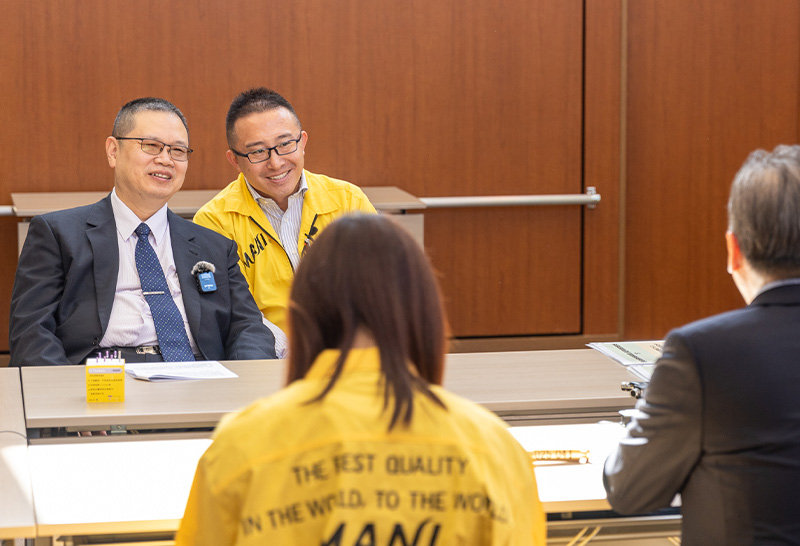

Now, let's move on to the next question. Could you tell us about the dental care environment in your respective regions?

Yes.Japan has a National Health Insurance system, so everyone has an insurance card and can receive medical treatment at a set rate. On the other hand, from clicians standpoint, unfortunately, the medical fee points for root canal treatment is not high. However, even under these circumstances, Japanese dentists are working very hard, I believe. For example, the insurance points for rubber dam was abolished in Japan a long time ago, but even so, there are still many dentists who use rubber dam in their practice today. In Japan, there is a qualification system for dental hygienists who carry out preventive procedures such as removing tartar under the direction of dentists. I think that there is a similar qualification system in countries such as the United States, but what about in Taiwan? It seems that you have a slightly unique system of your own, so could you tell us about it?

Yes. Before 1998, Taiwan had labor insurance, civil servant insurance, farmer's insurance, etc., but because information was not shared between the different insurance schemes, it was impossible to grasp the health of the population. After the implementation of universal health insurance in 1998, the government became the sole insurer, and it became compulsory for all citizens to be insured. This has expanded the scope of insurance, covering the entire population, and has also greatly advanced health management and data analysis. In terms of dentistry, the government has adopted a total budget system for medical expenses, so in principle the annual medical benefits budget must not be exceeded, and if it is exceeded, the benefits are reduced. Incidentally, the dental budget accounts for about 6% of the total medical budget. As for dental hygienists, as Dr. Okaguchi mentioned, there is no such position as a dental hygienist in Taiwan. All procedures must be carried out directly by a dentist, as stipulated by law. On the other hand, it is possible to hire assistants. These assistants do not need to have graduated from a dental-related department, but rather undergo training to become assistants, and they are responsible for tidying up the environment, managing infection prevention, sterilization, and patient reception and appointment management.

In Japan, there is a lot of aesthetic dental treatment such as bleaching, but in Taiwan, do dentists also do all of that? How is it there?

Yes, all of that is done by the dentist.

All of that is done by the doctor? That's a lot of work. But it's more reassuring that way. In Japan, the minimum standard of treatment is set within the scope of the insurance, and the insurance points are decided in relation to the national finances, so there is a natural limit. For example, if you want to have aesthetic requirements, such as having ceramic work done, you would have to pay for it yourself.(because it would be beyond the limit)

Thank you very much. Earlier, you mentioned that various factors are changing from the past to the present. Likewise, are there any changes expected in the future for this insurance system?

Yes, the Japanese medical system is based on treatment for illnesses, so are diagnoses and treatment are planned against the symptom such as tooth decay and periodontal diseases. However, rather than waiting until you become ill, shouldn't the emphasis be on treatment to prevent illness, in other words, preventative measures?Sweden, a leading country in preventive dentistry, has introduced plaque control and regular check-ups for young people into its health insurance system, and has achieved great results, so I would like Japan to also actively incorporate preventive measures and regular check-ups into its healthcare system to prevent illness before it occurs.

In the current health insurance system, the dental portion only accounts for 6% of the total, and the annual cost increase rate is also limited, so in many areas the medical fee points that can be applied for is not enough to meet the amount that dentists expect.
Also, in Taiwan, the amount that can be applied for for a single root canal treatment is approximately 1,100 Taiwan dollars. (approximately 5,200 yen / as of April 2024). As a result, dentists have no choice but to lower the priority of root canal treatment. One of the causes of these problems is that the insurance premiums paid by the public are too low. The National Health Insurance is a social insurance system, not a social welfare system. Medical professionals can provide high-quality medical services by receiving appropriate compensation, but the government's ideal is to have them provide more services for less compensation.This is the difficult part of the current Taiwanese healthcare system. I think that raising insurance premiums and providing doctors with appropriate compensation will make it possible to sustainably operate and develop the National Health Insurance system.

I see. The excellent treatment you provide is not “social welfare” but about to break a balance between the value of the treatment and the results you are paid. I know it won't be easy to change things quickly, but I hope things will gradually move in the ideal direction.
TOPIC06
Why is root canal treatment said to be difficult?

Next, I would like to ask you about root canal treatment. Of all the dental specialties, root canal treatment is generally said to be difficult, so I would like to ask you both for your opinions on the reasons for this. I also assume that there are differences between the certified specialist system for endodontists. Please tell us about these points.

In Taiwan, there is a specialist system for root canal treatment. In order to become a specialist, you first need to apply for membership of the Endodontic Society.After a certain period of time, the applicant submits a clinical report, and if they pass the examination, they can become a general member.
After completing the required training period at a hospital's root canal treatment department that has been certified by the Ministry of Health and Welfare, general members can become root canal treatment specialists by passing a written and oral examination. However, in Taiwan, more than 95% of patients do not seek treatment from specialists. Is root canal treatment difficult? can be explained in three parts. Firstly, patients have a strong desire to preserve their teeth, so they have high expectations for the success rate of root canal treatment. Secondly, because the health insurance benefits for root canal treatment are too low, dentists are not willing to spend the time and effort to increase the proportion of root canal treatments.
Finally, because the income from implants and prostheses is clearly higher than that from root canal treatment, and because they can earn higher fees from private pay, root canal treatment is not considered important by insurance benefits. These circumstances, unlike the first point where patients want high-quality root canal treatment, have resulted in dentists avoiding root canal treatment patients and not wanting to learn new knowledge. Instead, they choose to spend their time on high-paying implants, prosthetics and orthodontics.

How many specialist dentists are there in Taiwan? And is there a difference in the medical fee points allocated for root canal treatment between specialist dentists and general dentists?

There are about 1,200 specialist dentists in Taiwan. *In reality, the remuneration points are the same whether you are a specialist or not. Until a couple of years ago, there was a system of so-called referral fees. If you referred a case that you couldn't deal with yourself to a specialist, you would receive an extra 30% on top of the remuneration. However, this system has now been abolished due to budget issues.
*Previously there were around 1,200, but as of August 2024, the certification system has changed and there are currently around 324 nationally certified specialists. Dentists who do not meet the various unit certification requirements can reapply, and it is predicted that ultimately more than 1,000 certified doctors will be obtained.

So sorry to hear that. In Japan, there is no national system for certifying specialists in endodontics, and specialist systems are set up by academic societies for endodontics.
In Taiwan, can endodontic specialists also obtain qualifications as specialists in other fields?

Yes, it is possible for one doctor to obtain qualifications as a specialist in multiple fields. Also, in Taiwan there are specialists certified by the government and specialists certified by academic societies, as in Japan.
There are 10 specialties that can be certified by the government, and endodontics is one of them.

Thank you. In this topic, we have been able to clarify the differences between the two regions' specialist systems. In Japan, there is no specialist system certified by the government, whereas in Taiwan there is.
TOPIC07
What is the key to success in root canal treatment?
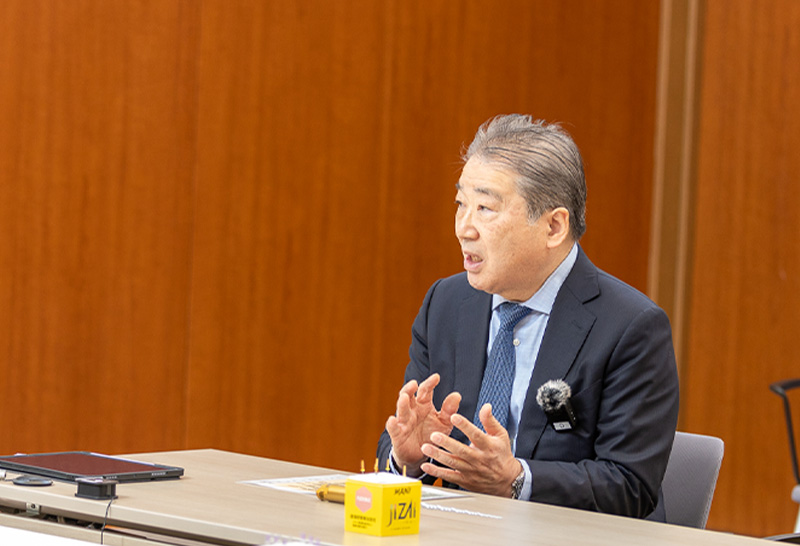

Next, please tell us what you think is the key to success in root canal treatment.
Also, could you give us some advice about the mistakes that beginners tend to make?

I think the key to success in root canal treatment is to keep in mind the removal of bacteria. The aim of all procedures is to remove bacteria.With this in mind, we aim to achieve highly efficient treatment with a simpler method and less time, while preserving as much tooth structure as possible. We start with a diagnosis, select the appropriate root canal of the patient's tooth, choose the appropriate procedure, understand the anatomy of the tooth, and use highly efficient auxiliary instruments (such as ultrasonic instruments, nickel-titanium files, microscopes, and bioceramics, etc.). All of this is aimed at achieving the goal of eliminating bacteria.
The mistakes that new doctors tend to make are: not understanding the anatomy of the tooth, not understanding standard operating procedures, not understanding the characteristics of the instruments and materials used, over concerned about the cost of treatment, and not having a strong enough awareness of preserving the tooth. Yesterday, I had the privilege of visiting Dr. Okaguchi's clinic and seeing the wonderful equipment there, which was very impressed. I realized that the reason he invests in the latest and best equipment, even if it costs a lot of money, is because he feels a sense of mission to ensure the success of root canal treatment. I think that's wonderful.

Thank you. What do you think, Dr. Okaguchi?

First of all, I think the key to successful root canal treatment is to carry it out safely. First, you need to accurately grasp where the root canal is located anatomically in the tooth before you open it up. For that, you need a CBCT in particular. In teeth that have calcified, the apical plate and the bottom of the pulp chamber are very close together, and the lateral walls also protrude. In such root canals, mistakes are especially likely to occur, so I think that the first important thing in root canal treatment is to find the root canal by carefully cutting away the area around the root canal under a magnification device such as a microscope to find the original root canal.
There are actually lots of bacteria in infected root canals. If you take the tissue inside the root canal with a micro-excavator and examine it under a phase contrast microscope, you can see that there are still bacteria left inside the root canal. For example, even if you cleaned with EDTA, which is the global standard, and then with hypochlorous acid, it is difficult to completely kill the bacteria in the root apex. Even though you may be able to remove the floating bacteria, the large number of bacteria found in the dentin around the root apex cannot be killed by washing alone. Therefore, I think that the key to success in root canal treatment is to use selective instrumental enlargement, that is, to remove as much of the infected or bacteria-contaminated tooth structure as possible.

I see. So, taking the appropriate steps, understanding the anatomy, and skillfully using the best equipment and instrunments are the key to success in root canal treatment, right?
As a medical device manufacturer, we also aim to continue providing better instruments that are useful for doctors.For example, the MANI JIZAI nickel-titanium rotary files that we are currently introducing is based on the concept of being as safe as possible and hard to fracture. We have put a lot of thought into making it so that even doctors who have not done many root canal treatments can use it.

Yes,this JIZAI file from MANI is very easy to follow in the root canal.Its high flexibility makes it possible to follow the root canal as you shape it.
If you keep rotating the conventional file, especially hard one is easy to cause transportation.
When using a hard file to shape a curved root canal, transportation is likely to occur, but this JIZAI file is rare. I think that this fact of shaping with the followability is an excellent characteristic of JIZAI.

Thank you. The products of MANI are very small, including files and burs, but I believe that the responsibility involved with such small products is really huge. Particularyl, these are products that come into direct contact with the patient's teeth and the doctor's hands. We aim to continue providing better products with a sense of responsibility and pride as a dental instruments manufacturer, and we will continue to work hard in line with our corporate philosophy of “Contributing to the world welfare through development, production and distribution of its products beneficial to patients and doctors.”.
TOPIC08
What are the key points to consider when purchasing a new product?
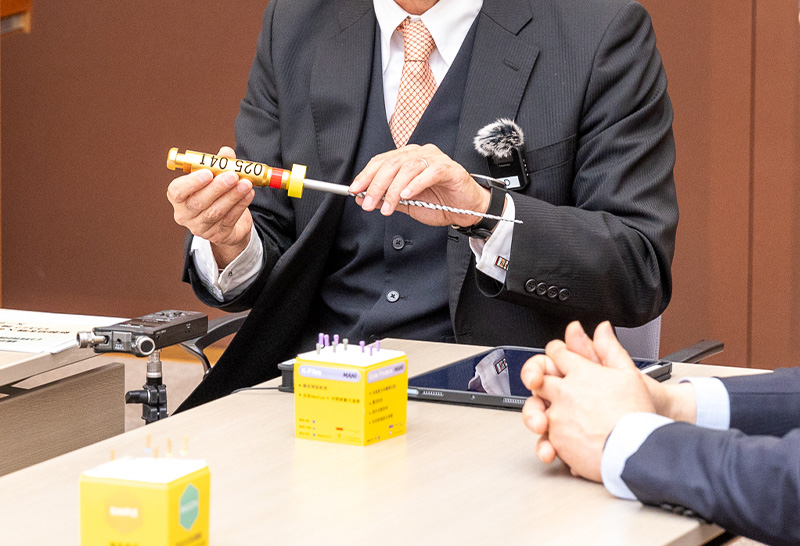

Now, let's move on to the next topic. When we announce such new products, if there are any key points of purchase from your perspective, I would be grateful to share with us. Dr. Lin, please.

Yes,the key points when deciding to purchase a new product are the degree of recognition and whether or not it meets the quality of treatment I am looking for. Word of mouth, other evaluations and reputations are also very important, brand loyalty is also important as well. Furthermore, I think that by adding things like product information lecture and seminar courses, you can deepen the impression of dentists and greatly increase the chances of them purchasing your product.
In Taiwan, insurance benefits for root canal treatment are very low, so dentists have to be very careful about product prices, and as a result, inexpensive Chinese and Korean products are popular. This is because the quality is within an acceptable range, and the price is very low.
In this situation, manufacturers and distributors do not need to see all dentists as customers, but should narrow down their targets to dentists who have the ability to improve the quality of root canal treatment and purchase their products. Therefore, holding product information ledture and hands-on courses should be given a lot of importance. What do you think, Dr. Okaguchi?

Yes, the selection criteria for various dental instruments are diverse. There are various factors involved, such as the reliability of the paper, the reliability of the manufacturer, and word of mouth, etc.
In my opinion,as far as the best way to understand the characteristics of nickel-titanium files is to actually try them out. There are many things that you can't understand just from reading papers or manufacturer's advertising slogans. So it's important to get the doctors who will be using them to actually try them out and experience their benefits and usefulness for themselves. I think that this kind of educational activity is necessary for nickel-titanium files. This will help people to understand their characteristics and advantages more deeply, and to use them appropriately.

I see. Seeing is believing. And experiencing is even better than seeing, isn't it?
We also believe that there is no better evaluation than actual experience, so we will continue to increase the number of opportunities for doctors to experience them.
TOPIC09
What do you expect from dental instruments manufacturer - MANI?
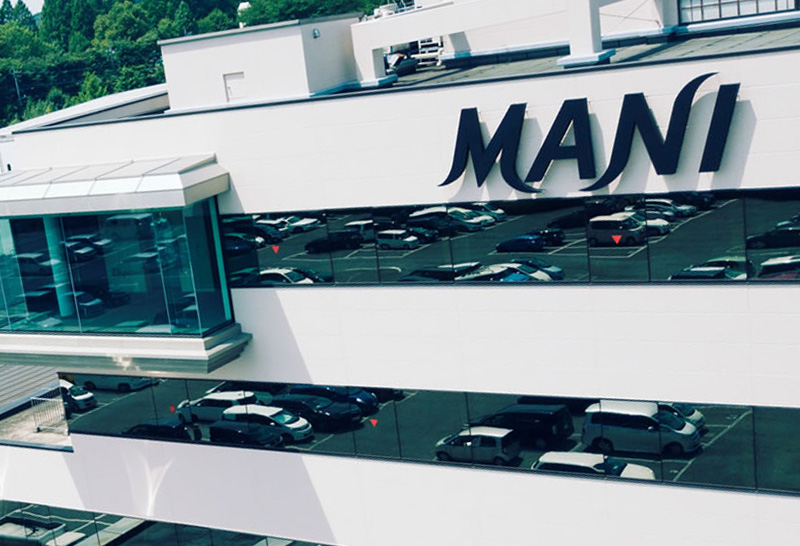

Now we come to the final topic. We would be very grateful if you could tell us what you expect from dental instruments manufacturers, in particular from MANI.

Yes, MANI's ophthalmic knife have an overwhelming share of the medical field. Unfortunately, they are not used much in dentistry, but if you try them you will find that they are extremely sharp. It's like a knife cutting through butter, and the sharpness is in a different dimension. I would really like you to sell it for dental use too.
At the moment, the only knife developed are for ophthalmology, so I think it would be necessary to have a knife with rigidity, angles and shapes that are specialized for dentistry. Also, MANI offers various types of sutures with needles for dental use, and the lineup goes up to 6-0. Now, doctors who use microscopes are starting to use 7-0. I myself use 8-0 to 10-0. I think it would be even easier to use if the lineup of needle lengths and curves could be increased according to the case. Now, microscopes are rapidly becoming more widespread in the dental field, so the instruments that can be used under the magnification are needed.

Thank you. As you say, MANI is a medical device manufacturer not only for dentistry, but also for various medical fields such as ophthalmology and general surgery, so we would like to introduce even better products while achieving synergistic effects. Dr. Lin, please give us your final thoughts.

Yes. MANI is a very long-established and extremely specialized manufacturer, but unfortunately, due to the incident involving imitation(fake) products a few years ago in Taiwan, there was a period when the quality stability of MANI products was called into question among dentists. However, this is now being improved. And now, with the arrival of the JIZAI files, dentists have become aware that MANI is also developing new nickel-titanium files. On the other hand, MANI does not yet provide other related products for root canal treatment, such as the motors and gutter perchas used with the files. Therefore, when holding seminars and hands-on courses, it is necessary to work with products from other companies and other distributors. I think it would be good if you could expand on this area. And this is a request as a speaker. Also, when holding product seminars, I would like you to always provide us with a lot of up-to-date data so that we can provide better information to the participants.

Thank you very much. I am so humbled by your honest feedback.
As for imitation(fake) products, this is the final difference between Japan and Taiwan that we discussed in this panel discussion. In Japan, there are almost no such imitation products, but unfortunately, other regions are suffering from the damage caused by imitation products. This is a truly sad for all of us. And as a result, it has created a situation where patients are not treated with the best possible dentistry. At MANI, we have been taking various measures to eradicate such counterfeit products.
In Taiwan, we signed an exclusive agency agreement with Changming Trading, and conducted various educational activities, such as warning the use of imitation products would prevent proper treatment. As a result, we have seen a growing awareness among dentists that they can be sure to procure genuine products if they purchase products from the authorized distributor Chang Ming Trading,
As a result, the distribution of imitation products in Taiwan has decreased significantly.
As we received your comments, we would also like to make the product information data on even better at conveying the quality and the value of MANI products - for example, one of the important aspects of root canal treatment, which is preserving your original tooth.
Preserving the tooth means that the periodontal ligament, which functions as a shock absorber, is there like a cushion, and it preserves the natural feeling of biting food.
As a manufacturer of endodontic files used in root canal treatment, we would like to make sure that the value of this treatment is known to the patients level.Finally,we at MANI have a sales policy of “The Best quality in the World, to the World”.However, we cannot achieve this policy alone.
This is because we are in the position of making the products. In the other words, what we can do is only the first part, which is “The Best quality in the World”. We need persons who can help us with this, who are key opinion leaders like you two. That is the second part, “to the World”. In other words, we make the products, and you leaders use them to treat patients around the world.
This will enable us to fulfill our mission of “The Best Quality in the World, to the World”. In the case of Taiwan, it would be “The Best Quality in the World, to Taiwan”, and eventually it would be “to the World”. From now on, MANI will continue to work hard while cherishing this sales policy and management philosophy, so we look forward to your continued support.
Thank you very much for taking the time to meet with us today.

It was a very meaningful time for me to be able to talk with Dr. Lin from Taiwan and Mr. Arakawa from MANI. I feel that the personal exchange between Taiwan and Japan has deepened, and I am proud that Japanese products can be used by people around the world with a sense of ensuring. I would also like to cooperate in the development of new products that will be useful around the world in the future. Thank you for today.

I have high hopes for the future. I am very grateful to Dr. Okaguchi and MANI for giving me this opportunity to visit MANI. Thank you very much for your time today.
